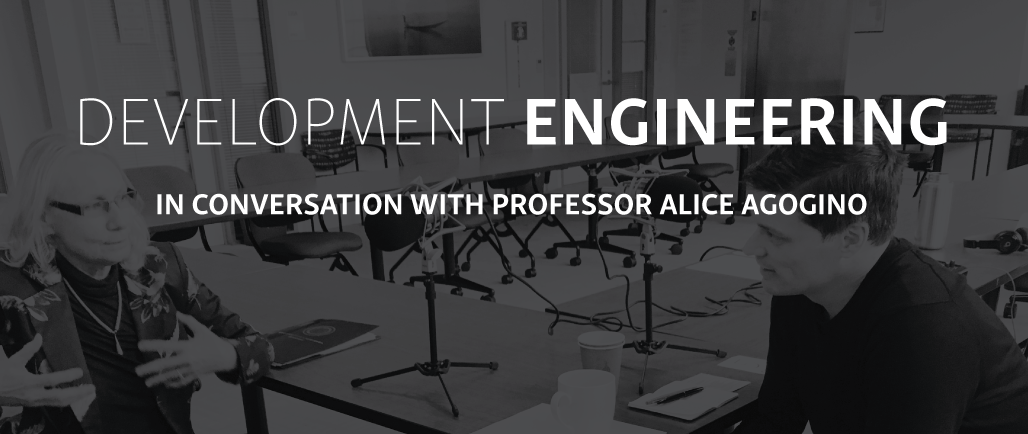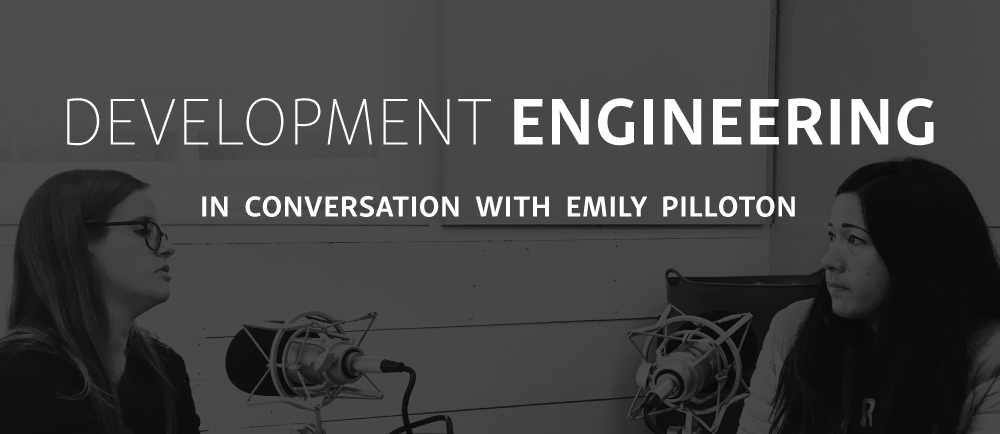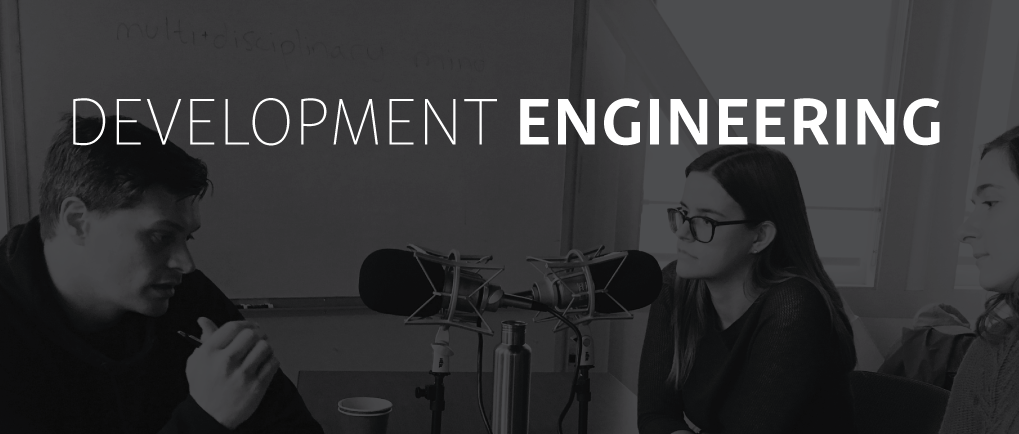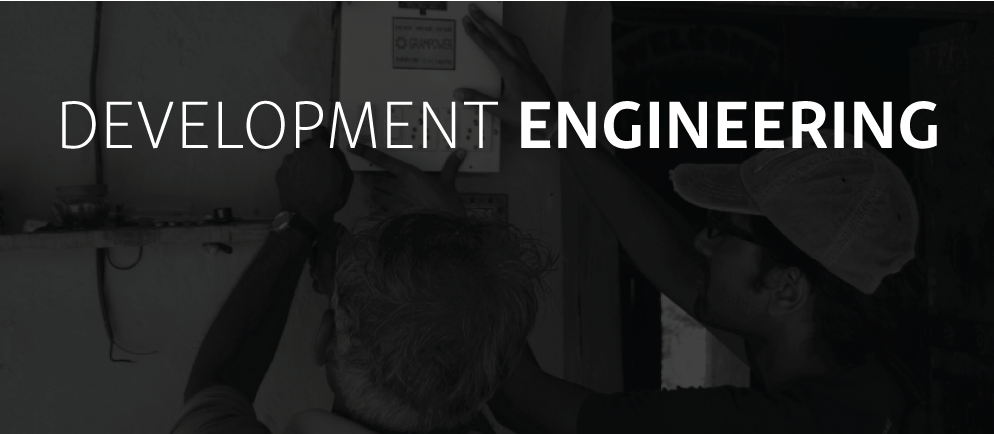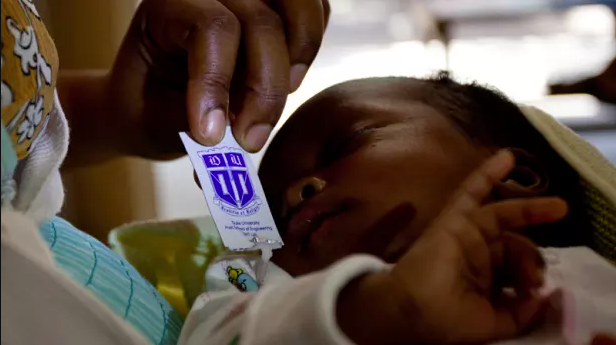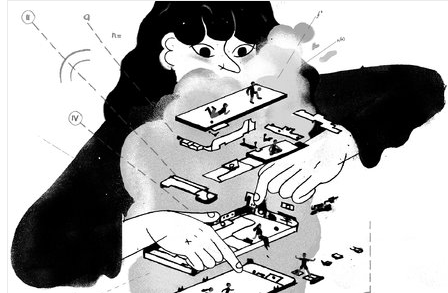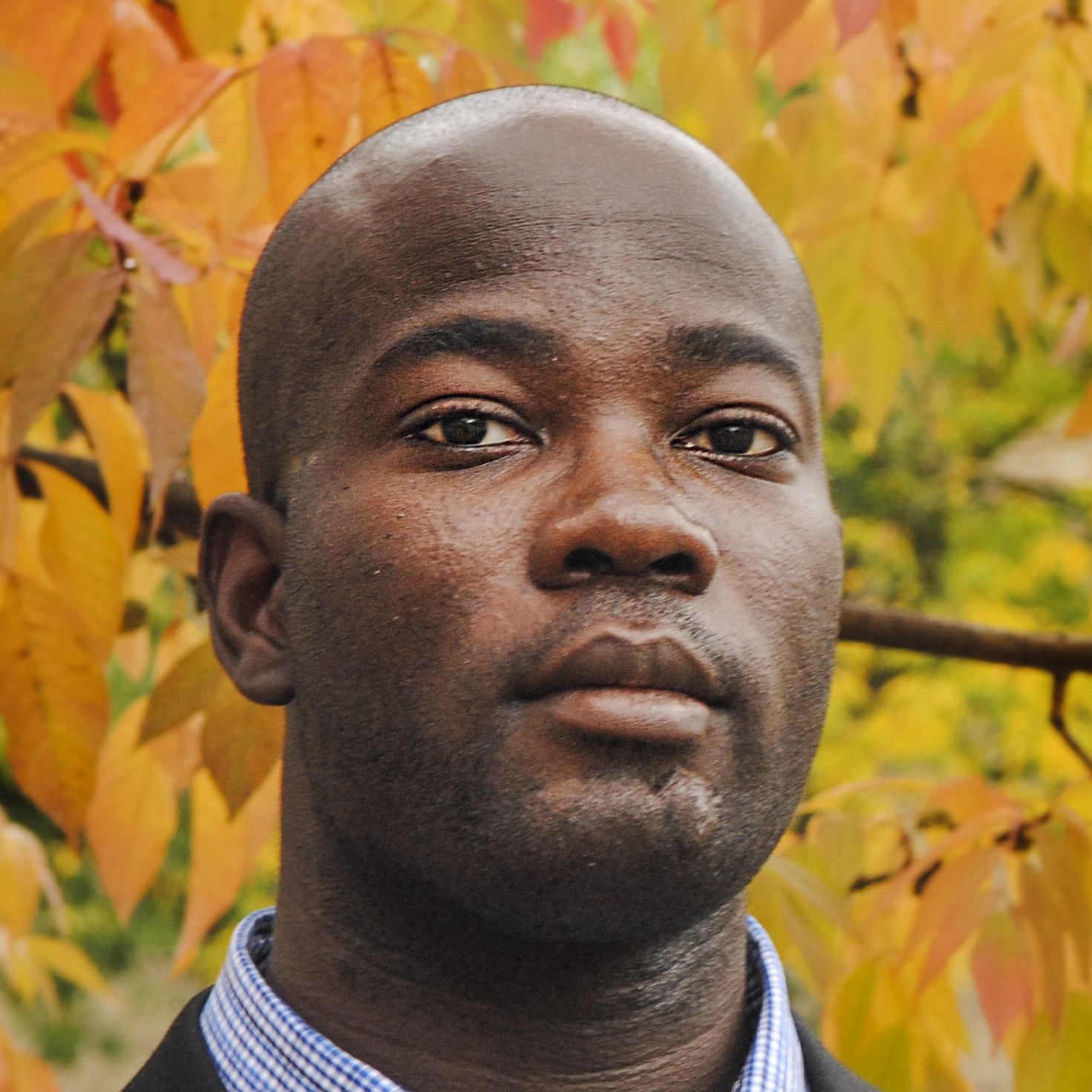Peace, data, development: Perspectives on poverty intervention
Tag: redirect
The Fun Palace 003: Alice Agogino
The Fun Palace 002: Emily Pilloton
The Fun Palace 001: Julia Kramer and Rachel Dzombak
Development Engineering: A Critical Overview
https://impactdesignhub.org/2017/01/19/development-engineering-critical-overview/
Classroom Inventions That Help Save Lives
NSF funds new projects to explore graduate education models
https://www.nsf.gov/news/news_summ.jsp?cntn_id=190074
New Autodesk Foundation partnership strengthens impact design-centered problem-solving
Development Engineering Awarded $3 Million From National Science Foundation
Design Thinking in Development Engineering
How Do You Grow An Entrepreneur?
http://universityofcalifornia.edu/news/how-do-you-grow-entrepreneur
Engineering in Solidarity: A Development Impact Lab Postdoc’s Reflection
Big Ideas IT Finalists Put Apps to Work for Social Impact
Using Mobile Phones to Alert Households Waiting for “NextDrop” of Water (USAID Blog)
Q&A with Glenn Yago
Solutions By Design: Development Engineering at UC Berkeley and the Autodesk Foundation
CGI U 2016: Videos of the Plenary Sessions
Clintons, CGI University at Berkeley this weekend (UC Berkeley News)
Blum Faculty Isha Ray Publishes “Towards Gender Equality through Sanitation Access,” a Discussion Paper for UN Commission on the Status of Women
http://prod.unwomen.org/en/digital-library/publications/2016/3/towards-gender-equality-through-sanitation-access
Hombres Verdaderos: Training Youth to Confront Domestic Violence
Development Engineering: Reflections from a Development Impact Lab Postdoctoral Fellow
http://dil.berkeley.edu/development-engineering-reflections-from-a-development-impact-lab-postdoctoral-fellow/
Transforming Maternal Healthcare in Kenyan Slums
The Somo Project: Learning Lessons in Kibera
Turning Feces to Fuel in Kenya
Teachers as Agents of Conflict Resolution in Chile: Big Ideas Winners Kuy Kuitin
Founders of Endaga to Join Facebook
GPP Interim Director Clare Talwalker Reflects on Katherine Boo’s Visit to Berkeley
Big Ideas Winners Aim to Digitally Track Vaccinations in Rural India
Blum Center Fosters a New Kind of Development Professional: The Development Engineer (DevEx News)
https://www.devex.com/news/a-new-kind-of-development-professional-the-development-engineer-86919
We Care Solar is awarded US$1 million United Nations Energy Grant to expand the use of life-saving “Solar Suitcase” (United Nations News)
https://poweringthefuture.un.org/news/awardceremony2015
The Problem with “Help” in Global Development (Commentary by DevEng student Julia Kramer in the Stanford Social Innovation Review)
http://ssir.org/articles/entry/the_problem_with_help_in_global_development
Ticora Jones: The Federal Government Scientist for Global Development
http://dil.berkeley.edu/ticora-jones-the-federal-governments-scientist-for-global-development/
GridWatch: Using Cell Phone Sensors to Detect Power Outages
Put Innovators to Work on Making Clean Air Affordable in China: An Op-Ed from Design for Sustainable Communities Student Ming Zhang
http://www.scmp.com/comment/insight-opinion/article/1826769/put-innovators-work-making-clean-air-affordable-china
What Are the Ethics of Humanitarian Technology? An Interview with Blum Center Postdoc Imran Ali in Engineering for Change
Making History: Blum Center Director of Student Programs Sean Burns Profiled in the East Bay Express
http://www.eastbayexpress.com/oakland/making-history/Content?oid=4260987
Smartphone Video Microscope Automates Detection of Parasites in Blood
http://newscenter.berkeley.edu/2015/05/06/video-cellscope-automates-detection-of-parasites/
The Ultimate Innovation Jam: Big Ideas@Berkeley Announces 2014-2015 Contest Winners
How to Attract Female Engineers (New York Times Op-Ed by Blum Center Director of Innovation Lina Nilsson)
Reflections from a Development Impact Lab Postdoctoral Fellow
Teaching Leadership, Female to Female
Students’ “Feeding Forward” fights hunger, food waste
http://newscenter.berkeley.edu/2014/11/12/students-feeding-forward-app-fights-hunger-food-waste/
What If Everything We Knew About Poverty Was Wrong?
There’s no getting around the veracity of Matthew 26:11. “…For ye have the poor always with you,” as the King James Version has it. But as long as there has been poverty, there have also been decent souls trying to eliminate it.
So how are they doing? Not very well. According to the World Food Programme, 805 million people don’t have enough to eat. World Bank figures confirm that more than 3 billion people—or somewhat less than half the total planetary population–eke by on less than $2.50 a day, while almost 1.5 billion subsist on less than $1.25 a day. Fully 80 percent of the planet’s people get by on less than $10 a day. In other words, it’s not so much a case of the poor always being with us. Considered from a global perspective, the poor are us. Most human beings live in poverty, and for many the situation is utterly desperate.
#Global POV: Can Experts Solve Poverty?
Generation Y is on a mission to solve global poverty. A group of professors at the University of California, Berkeley is on a mission to stop them. It’s not that these Berkeley academics are not dedicated to alleviating poverty and inequality — in fact, quite the opposite. It’s just that they want students first to study and think about the history of attempts to solve, alleviate, and even understand poverty.
Engineering Improvements for the World
(Published in the Washington Post) By Lina Nilsson and Shankar Sastry In labs around the world, a new generation of engineers is emerging. They are men and women concerned by the gulf between rich and poor and by environmental changes and resource depletion. They are what we call “development engineers” — engineers (and often economics, business and social science majors, as well) who are dedicated to using engineering and technology to improve the lot of the world’s poorest people.
Toward a New Field of Development Engineering: Linking Technology Design to the Demands of the Poor
Here Versus There: Reflections from a “Voluntourist”
(Published in the San Francisco Chronicle) By Brenna Alexander Despite the altruistic lure of international volunteering, those seeking meaningful work should look no further than their own backyard. Last summer, I taught and played and laughed with children cooped up in a Cambodian orphanage. I had gone to Cambodia to work for another nonprofit organization. …
While there is much to learn abroad, volunteering at home is different and usually far more beneficial. If you volunteer at home, you are constantly reminded of the persistence of human suffering and the incredible difficulty of generating economic and societal change. When you volunteer at home, you encounter the injustice that resides within your own community – injustices that may collapse long-held notions and the allure of simple solutions.
